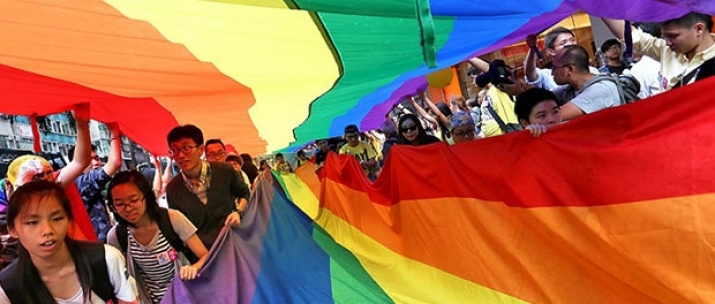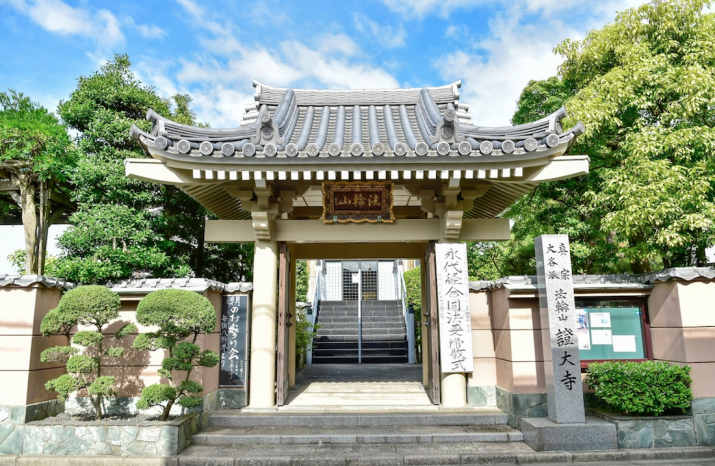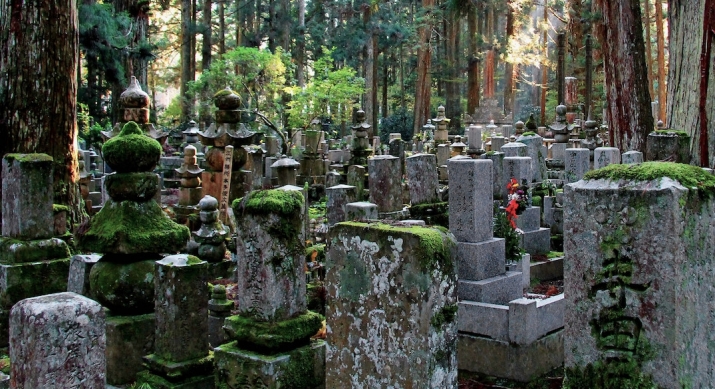Buddhistdoor Global 2017-03 29
 Japanese society has grown increasingly accepting and supportive of same-sex relationships in recent years. From pridelife.com
Japanese society has grown increasingly accepting and supportive of same-sex relationships in recent years. From pridelife.com
A Buddhist temple in Tokyo is making a break with tradition by offering shared graves for couples from Japan’s lesbian, gay, bisexual, and transgender (LGBT) community.
Shodai-ji, a temple of the Jodo Shinshu school of Japanese Buddhism in Tokyo’s Edogawa Ward, decided to offer the option after requests for joint graves began to become more frequent. “We’d like to care for people of diverse sexualities and help those who are worried about their graves,” a temple official was quoted as saying by The Japan Times newspaper.
The news marks an increasing level of acceptance and support for same-sex relationships in Japanese society in recent years, and comes just a week after the municipal government of the northern city of Sapporo announced that it plans to officially recognize partnerships between LGBT couples from June, becoming the first major city in Japan to do so. In April 2015, Tokyo’s Shibuya Ward became the first municipality in the country to recognize same-sex partnerships as equivalent to marriage, and several other wards subsequently followed suit.
Shodai-ji’s 43-year-old head monastic Joji Inoue, who proposed the initiative, noted that he wanted to change the concept of graves in Japan, which is traditionally strictly bound by the country’s family registry system. “As far as I know, there are no graves same-sex couples can share,” he said. (The Japan Times)
While there are no legal restrictions in Japan against unmarried couples being buried together, most cemeteries do not offer the choice out of concern that it could lead to problems from more conservative quarters of Japanese society. In some instances, family members may disapprove of “non-traditional” couples being buried together.
 Shodai-ji is a Jodo Shinshu temple in Tokyo’s Edogawa Ward. From google.com
Shodai-ji is a Jodo Shinshu temple in Tokyo’s Edogawa Ward. From google.com
The Japan Times cited the case of Miki Kogure, a 26-year-old woman from Tokyo, who has faced hurdles arranging for a shared grave with her partner, a man who was born female and is registered as a woman in the family registry. “If a same-sex couple share a grave, that will do no harm to other people,” she said. “In reality, however, there are a lot of obstacles.” (The Japan Times)
The graves for LGBT couples—which Inoue has dubbed “&,” pronounced “ando” in Japanese, which describes a sense of relief, is intended to convey an assurance that people can rest in peace with their loved ones—take the form of 1.2-meter-high cylindrical tombstone made from white marble, upon which couples can choose to have their names or nicknames inscribed. Shodai-ji has allocated space for the new graves at cemeteries in Chiba and Saitama prefectures.
In cases where couples may not have no children, grandchildren, or other family members to attend to the upkeep of the graves, the temple plans to transfer their ashes to a group burial facility six years after they are interred.
“Buddhism doesn’t discriminate on the basis of sex or impose an idea of what a person should be,” Inoue observed. “I hope to eliminate prejudice and discrimination” against sexual minorities. (The Japan Times)
 Shodai-ji’s head monastic wants to change the concept of graves in Japan, which is traditionally strictly bound by the country’s family registry system. From whenonearth.net
Shodai-ji’s head monastic wants to change the concept of graves in Japan, which is traditionally strictly bound by the country’s family registry system. From whenonearth.net
A majority of Japan’s population—some 57 per cent—claims no religious affiliation, according to data for 2010 from the Washington, DC-based Pew research Center. Buddhists represent the second-largest segment of the population at 36.2 per cent, while other religions combined make up roughly 10 per cent.
No comments:
Post a Comment